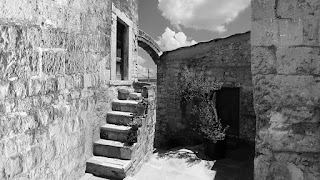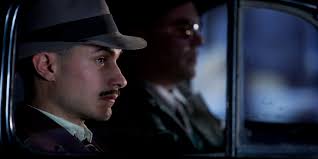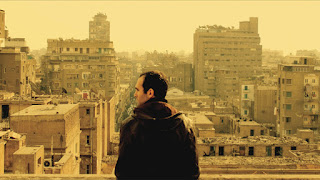At times, it was hard to think of films in 2016 given the shifting political winds around the world. Thankfully, global cinema was in step with the changes and some films predicted the anger and shift to the right. Naturally, most of these films were only found at various international film festivals, cinematheques and arthouses. Hopefully, some of these titles start getting distribution in 2017 and find a larger audience.
Note: for the sake of an even comparison, only 2016 titles are considered for this list.
Baker’s Dozen of Top 2016 films
1. Take Me Home (Iran, Abbas Kiarostami)
Cinema lost a leading voice when Abbas Kiarostami passed away in 2016. The artistic beauty with which he crafted his films can be found in Take Me Home, a lovely short film about a soccer ball’s journey. The short is beautiful, packs warm emotions and plays with the concept of reality. A precious final gift from one of cinema’s greatest directors!
2. Aquarius (Brazil/France, Kleber Mendonça Filho)
Even though the film is localized to a Brazilian apartment building, the events echo our current world of rapid development where the past is always in danger of being demolished for a shiny new future.
3. The Student (Russia, Kirill Serebrennikov)
The Student brilliantly portrays the recent changing political sentiment in Europe and USA. The film uses the radicalization of a lonely shy white male to underline that hateful ideas that may seem harmless at first can result in grave consequences if unchecked and allowed to spread.
4. Shin Godzilla (Japan, Hideaki Anno/Shinji Higuchi)
A film of immense beauty and fierce intelligence about creation, evolution, destruction, logistics and problem solving.
5. Nocturama (France/Germany/Belgium, Bertrand Bonello)
A tense razor sharp film that is stripped of any specific ideology but is completely aware of our contemporary world.
6. Nightlife (Slovenia/Republic of Macedonia/Bosnia and Herzegovina, Damjan Kozole)
This Slovenian co-production cleverly uses a single incident to depict how private events can quickly end up becoming public scandals. The film style has shades of the Romanian New Wave.
7. Silence (USA/Mexico/Taiwan, Martin Scorsese)
At its core, this is a film about imposing one's will on others. On a macro-level, this is a clash of civilizations/religions. But this idea of imposing ideas onto another takes place on micro-levels as well, from every day beliefs about sports, politics and even the weather. On a micro-level, these ideas may seem harmless and can be ignored. But this need to impose one's way can take on serious consequences on a macro-level. Throughout history, men (always men, which is why no female leads are in the film) have tried to convert others, to conquer other's soul, minds. Men did this because they believed their way was the only way. So they went about with extreme measures and tortured, killed until the others accepted.
Silence is not an easy film to watch and needs time to digest. But it is one of most significant and relevant films of the year!
8. Neruda (Chile/Argentina/France/Spain/USA, Pablo Larraín)
Creatively uses the poetry of Neruda to create a fictional framework which questions the reality and myth surrounding Neruda’s escape. Infused with humour and a scrumptious touch of noir.
9. Yourself and Yours ( South Korea, Hong Sang-soo)
In the films of Hong Sang-soo, characters open up their feelings and transform when alcohol is present. That point is hammered home in Yourself and Yours where the main character morphs into a completely different person as soon as a fresh pint of beer is served. The end result is a dizzying delightful work!
10. The Ornithologist (Portugal/France/Brazil, João Pedro Rodrigues)
A hypnotic journey which is an innovative mix of a fable and myth that seamlessly shifts through multiple cinematic genres.
11. In the Last Days of the City (Egypt/Germany/UK/UAE, Tamer El Said)
tied with
Clash (Egypt/France, Mohamed Diab)
Two completely different Egyptian films set in different eras but the two films end up having a dialogue with each other.
In the Last Days of the City is a poetic love letter to a Cairo that no longer exists. The film consists entirely of footage shot in 2009-10 and there are many scenes which may have seemed harmless back in 2010 but take on a much different meaning after the 2011 Egyptian revolution. In the Last Days of the City shows a time when people could roam the streets of Cairo freely and openly discuss political ideas. The freedom of the camera’s movement in Tamer El Said’s film is in stark contrast to Clash which is set in a confined space in the back of a police van.
Mohamed Diab’s powerful film depicts the division in Egyptian society that came to a boil in 2013. The confined space in Clash creates a powerful immersive experience and mirrors the state of society in 2013 in contrast to In the Last Days of the City.
13. Fences (USA, Denzel Washington)
A film that will always be timely due to the discussions about a racial past and also due to the honest practical conversations about relationships. The dialogues articulate what a relationship means and outlines the every day dollar value associated with decisions that people make. These dialogues won't apply to the 1% but for the 99%.
Honourable mentions (alphabetical order):
Elle (France/Germany/Belgium, Paul Verhoeven)
Hell or High Water (USA, David Mackenzie)
The Human Surge (Argentina/Brazil/Portugal, Eduardo Williams)
It’s Not the Time of My Life (Hungary, Szabolcs Hajdu)
Life after Life (China, Zhang Hanyi)
Mother (Estonia, Kadri Kõusaar)
Old Stone (Canada/China, Johnny Ma)
Note: for the sake of an even comparison, only 2016 titles are considered for this list.
Baker’s Dozen of Top 2016 films
1. Take Me Home (Iran, Abbas Kiarostami)
Cinema lost a leading voice when Abbas Kiarostami passed away in 2016. The artistic beauty with which he crafted his films can be found in Take Me Home, a lovely short film about a soccer ball’s journey. The short is beautiful, packs warm emotions and plays with the concept of reality. A precious final gift from one of cinema’s greatest directors!
2. Aquarius (Brazil/France, Kleber Mendonça Filho)
Even though the film is localized to a Brazilian apartment building, the events echo our current world of rapid development where the past is always in danger of being demolished for a shiny new future.
3. The Student (Russia, Kirill Serebrennikov)
The Student brilliantly portrays the recent changing political sentiment in Europe and USA. The film uses the radicalization of a lonely shy white male to underline that hateful ideas that may seem harmless at first can result in grave consequences if unchecked and allowed to spread.
4. Shin Godzilla (Japan, Hideaki Anno/Shinji Higuchi)
A film of immense beauty and fierce intelligence about creation, evolution, destruction, logistics and problem solving.
5. Nocturama (France/Germany/Belgium, Bertrand Bonello)
A tense razor sharp film that is stripped of any specific ideology but is completely aware of our contemporary world.
6. Nightlife (Slovenia/Republic of Macedonia/Bosnia and Herzegovina, Damjan Kozole)
This Slovenian co-production cleverly uses a single incident to depict how private events can quickly end up becoming public scandals. The film style has shades of the Romanian New Wave.
7. Silence (USA/Mexico/Taiwan, Martin Scorsese)
At its core, this is a film about imposing one's will on others. On a macro-level, this is a clash of civilizations/religions. But this idea of imposing ideas onto another takes place on micro-levels as well, from every day beliefs about sports, politics and even the weather. On a micro-level, these ideas may seem harmless and can be ignored. But this need to impose one's way can take on serious consequences on a macro-level. Throughout history, men (always men, which is why no female leads are in the film) have tried to convert others, to conquer other's soul, minds. Men did this because they believed their way was the only way. So they went about with extreme measures and tortured, killed until the others accepted.
Silence is not an easy film to watch and needs time to digest. But it is one of most significant and relevant films of the year!
8. Neruda (Chile/Argentina/France/Spain/USA, Pablo Larraín)
Creatively uses the poetry of Neruda to create a fictional framework which questions the reality and myth surrounding Neruda’s escape. Infused with humour and a scrumptious touch of noir.
9. Yourself and Yours ( South Korea, Hong Sang-soo)
In the films of Hong Sang-soo, characters open up their feelings and transform when alcohol is present. That point is hammered home in Yourself and Yours where the main character morphs into a completely different person as soon as a fresh pint of beer is served. The end result is a dizzying delightful work!
10. The Ornithologist (Portugal/France/Brazil, João Pedro Rodrigues)
A hypnotic journey which is an innovative mix of a fable and myth that seamlessly shifts through multiple cinematic genres.
11. In the Last Days of the City (Egypt/Germany/UK/UAE, Tamer El Said)
tied with
Clash (Egypt/France, Mohamed Diab)
Two completely different Egyptian films set in different eras but the two films end up having a dialogue with each other.
In the Last Days of the City is a poetic love letter to a Cairo that no longer exists. The film consists entirely of footage shot in 2009-10 and there are many scenes which may have seemed harmless back in 2010 but take on a much different meaning after the 2011 Egyptian revolution. In the Last Days of the City shows a time when people could roam the streets of Cairo freely and openly discuss political ideas. The freedom of the camera’s movement in Tamer El Said’s film is in stark contrast to Clash which is set in a confined space in the back of a police van.
Mohamed Diab’s powerful film depicts the division in Egyptian society that came to a boil in 2013. The confined space in Clash creates a powerful immersive experience and mirrors the state of society in 2013 in contrast to In the Last Days of the City.
13. Fences (USA, Denzel Washington)
A film that will always be timely due to the discussions about a racial past and also due to the honest practical conversations about relationships. The dialogues articulate what a relationship means and outlines the every day dollar value associated with decisions that people make. These dialogues won't apply to the 1% but for the 99%.
Honourable mentions (alphabetical order):
Elle (France/Germany/Belgium, Paul Verhoeven)
Hell or High Water (USA, David Mackenzie)
The Human Surge (Argentina/Brazil/Portugal, Eduardo Williams)
It’s Not the Time of My Life (Hungary, Szabolcs Hajdu)
Life after Life (China, Zhang Hanyi)
Mother (Estonia, Kadri Kõusaar)
Old Stone (Canada/China, Johnny Ma)












